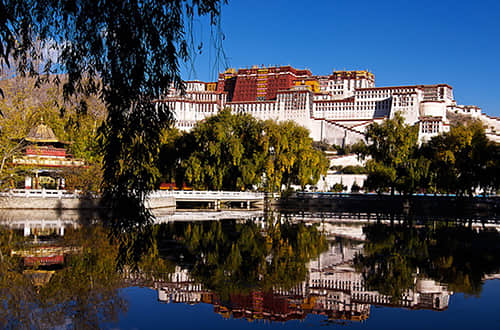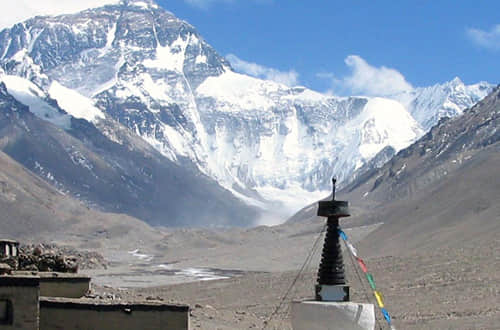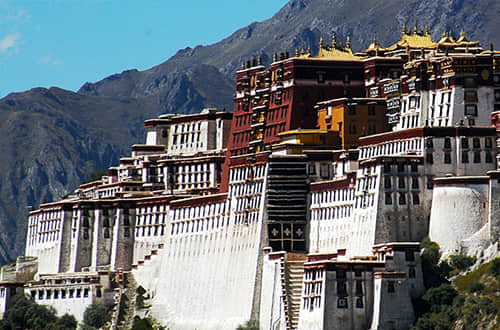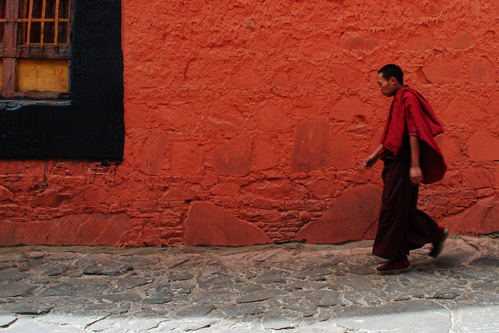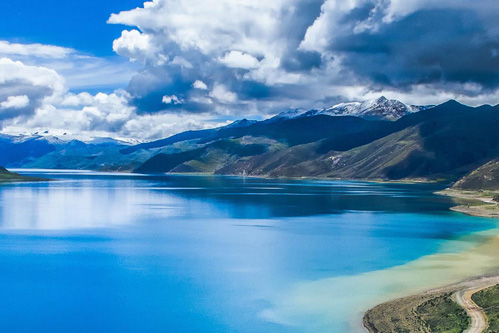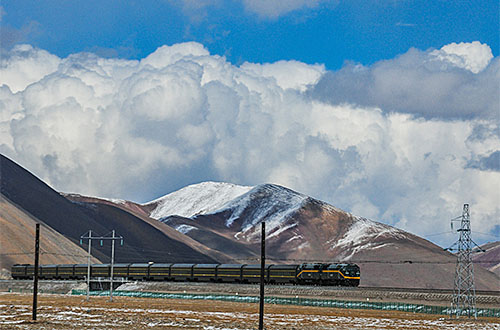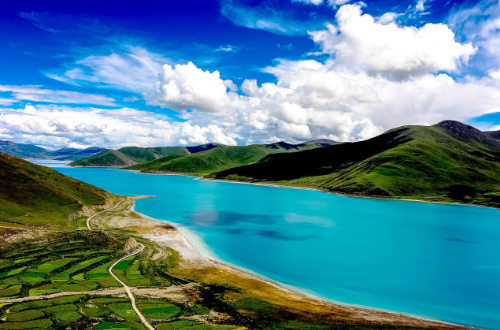
Frequently Asked Questions About Tibet Tours
Tibet Autonomous Region (TAR for short), a land of Buddhist culture and highland scenery, attracts admirers of all persuasions every year from both home and abroad. It rewards everyone with an unforgettable experience of the land, the people and the mysticism! Travel with our local experts to explore the 1300-year old Lhasa and the Potala Palace, eat Tibetan food, drink Tibetan tea, interact with local people and monks, and visit the Mt. Everest base camp. All your requirements can be accommodated.
Note: Considering bad weather might occur and safety concerns, Tibet has closed to overseas travelers from Jan. 31 to Mar. 31 annually since 2008.
Is it worth going to Tibet?
Absolutely. Tibet, often referred to as the "Roof of the World," offers breathtaking natural landscapes, including towering snow-capped mountains and crystal-clear lakes, creating an atmosphere of unparalleled tranquility and vastness. Additionally, Tibet boasts a rich history of Tibetan Buddhism, with numerous temples and the heartfelt devotion of its practitioners contributing to a unique cultural tapestry. Engaging with the local community can evoke profound inner peace and serenity. This spiritual awakening and purification is an invaluable treasure to carry throughout one’s life.
What is the best time to visit Tibet?
The ideal months for visiting Tibet are from April to November.
Spring (April-May): Notable events include the Peach Blossom Festival in Linzhi in April and the Pilgrimage Festival in May.
Summer (June-August): This is the prime season for exploring vast grasslands and lakes, such as the Qiangtang Grassland in Nagqu and Mount Kailash in Ali. During this period, various cultural festivals, including the Shoton Festival and Lhasa Beer Festival, are celebrated, offering an immersive experience in Tibetan culture. However, be prepared for increased rainfall and unpredictable weather.
Autumn (September-November): This is when the scenery is at its most picturesque, although temperatures begin to drop significantly, necessitating appropriate warm clothing.
How many days should I spend in Tibet for my trip?
We recommend a minimum of four days for your trip. A standard itinerary typically spans six to seven days, allowing for comprehensive exploration of Tibet's main attractions.
Why is travel to Tibet relatively expensive?
Traveling to Tibet can be pricier than other regions in China due to its remote location, harsh environment, and high altitude. The scarcity of tourism resources and infrastructure further contributes to the higher costs associated with visiting this unique destination.
What currency is used in Tibet?
Chinese Yuan (Renminbi)
Is a tour guide required in Tibet?
Yes, visitors must be accompanied by a local tour guide, whether on a private or group tour. Furthermore, if you plan to explore areas outside of Lhasa, you will also need a private vehicle and a driver, who is not the same person as your guide.
What language is spoken in Tibet?
The primary language spoken in Tibet is Tibetan.
How can I avoid altitude sickness in Tibet?
Upon arrival in Tibet, it is advisable to refrain from taking a shower immediately, as this can accelerate blood circulation and increase the risk of altitude sickness.
How should I prepare for a trip to Tibet?
If you do not possess a Chinese ID, Hong Kong/Macau passport, or Home Return Permit, you will need to secure a Tibet Entry Permit to enter Tibet. Additionally, if you plan to visit more remote and border regions such as Ali, Mount Everest, Shannan, or Linzhi, other permits may be required, including Aliens' Travel Permit, Tibet Military Permit, and Border Pass (which must be obtained by all travelers including Chinese people). These essential documents should be prepared in advance, as the application process can be lengthy.
How long does it take to obtain a Tibet Travel Permit?
Typically, it takes about 20 days to obtain the necessary permits.
How do I apply for a Tibet Travel Permit?
To apply for a Tibet Travel Permit, please contact us to book a Tibet tour. Send us clear and complete photocopies of your valid passport (which must be valid for at least six months) and Chinese visa. (Note: If you qualify for China’s visa-free policies, such as being an Australian passport holder, you can apply for a Tibet Travel Permit without a visa. However, your stay cannot exceed the permitted duration of visa-free travel. If your tour exceeds this duration, a Chinese visa is required.) Additionally, provide an address in mainland China where your Tibet Travel Permit can be sent. Once you receive your permit, ensure that you keep it safe, as it is only valid with both pages and the anti-counterfeit code intact.
What is the cost of a Tibet Travel Permit?
The Tibet Travel Permit cannot be applied for separately. After booking your Tibet tour with us, simply email us the necessary documents. We will assist you in applying for and obtaining all required permits. It's free.

